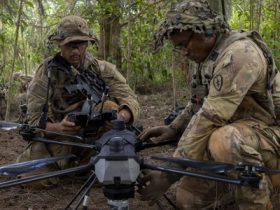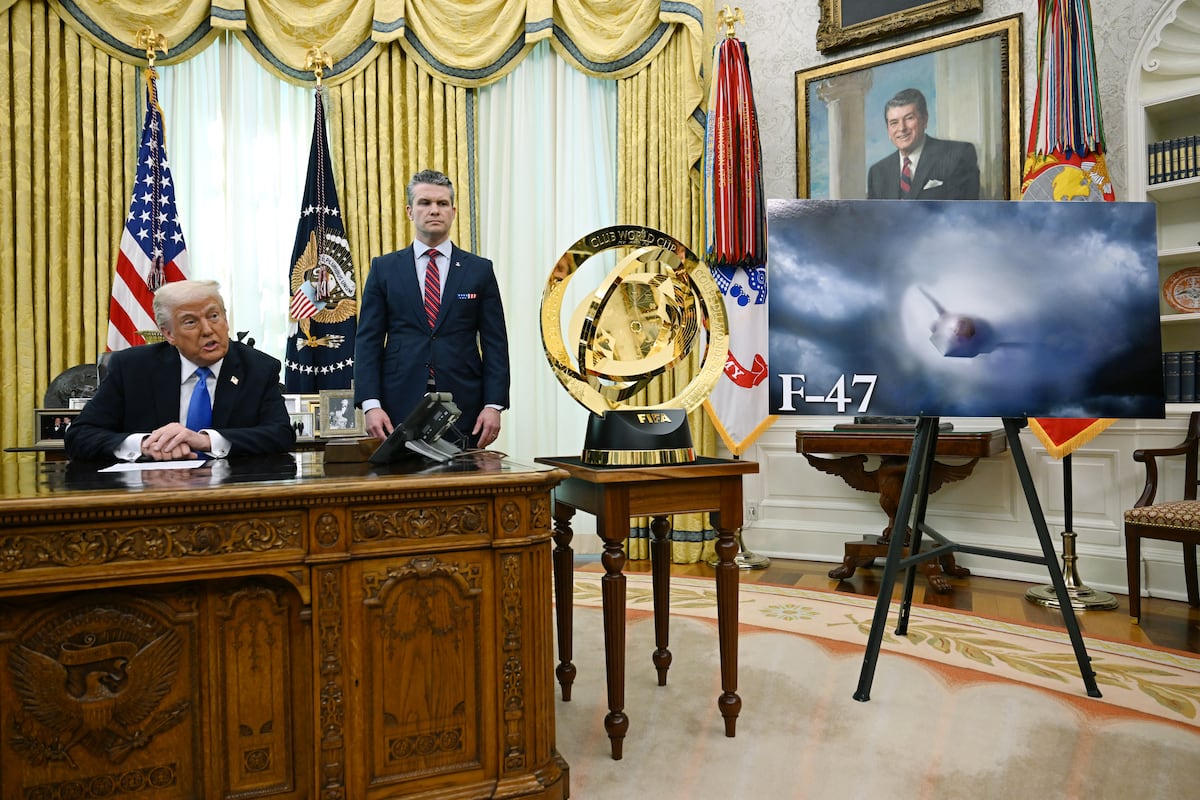Nearly 32 years have passed since Master Sgt. Gary I. Gordon handed a rifle and remaining rounds of ammunition to Black Hawk pilot Chief Warrant Officer 4 Michael Durant at the helicopter’s wreckage site, said, “Good luck,” and waded into a sea of swarming Somali enemies with only a pistol in hand.
The base, which was originally named after Confederate General John B. Gordon, now honors the Medal of Honor recipient known for his heroism during the 1993 “Black Hawk Down” events in Mogadishu, Somalia.
Gordon’s widow, Carmen Drake-Owens, and son, Ian, attended the event.
In 1992, the goal of U.S. intervention in Mogadishu, Somalia, was relatively straightforward: Ensure that the starving Somali population, suffering from famine brought on by civil war, received food.
According to Time magazine, Americans hoped to prevent attacks on UN Relief operations by followers of Somali warlord Mohamed Farrah Aidid.
However, on Oct. 3, 1993, U.S. troops encountered resistance. As 100 Army Rangers and 12 Black Hawk helicopters raided a site with Aidid supporters, they were quickly ambushed.
Upon getting word about the crash, Gordon and fellow sniper Sgt. 1st Class Randy Shughart repeatedly pressed to be dropped at the crash site, imbued with the Ranger Creed: “Never shall I fail my comrades. … Surrender is not a Ranger word. I will never leave a fallen comrade to fall into the hands of the enemy.”
“I remember specifically on the radio, Gary and Randy asking to be inserted into the battlefield,” retired Col. Ron Russell, a Special Forces operations officer and veteran of the battle, recounted during the ceremony.
“I imagine now that they were flying around the battle, they could look down at the crash site, and they could see the hordes of Somalis that were surrounding the crash site. The pilot that inserted them has since stated that no one in their right mind would have gone, because they could see exactly what they were getting into.”
But Gordon and Shughart pressed on. Inserted 100 yards from the crash site, the pair fought their way through “a dense maze of shanties and shacks” to the Black Hawk, according to their citations.
The soldiers found that three of its crew members did not survive the crash, but its pilot, Durant, albeit stunned and wounded, was still alive.
Pulling Durant from the wreckage, the three soldiers were immediately surrounded by enemy fire. Despite Somali fighters pressing in from all sides, Gordon, Shughart and Durant continued to fight, but soon found that their ammunition was severely depleted.
Radioing for help and recovering some of the weapons and ammunition from the killed Black Hawk crew, Gordon, according to his citation, “continued to travel the perimeter, protecting the downed crew.”
After Shughart was fatally wounded and with Gordon’s own ammunition critically low, the soldier returned to the Black Hawk one final time, fatefully giving the last rounds to Durant before uttering the words, “Good luck.” He was killed shortly after.
“On that day, not only did he do that, but he volunteered to come into my crash site and save my life,” Durant recalled during a recorded message following the ceremony. “I would not be here if not for his actions and Randy’s actions.”
Both Shughart and Gordon posthumously received the Medal of Honor for their actions.
Durant, meanwhile, was captured and held prisoner. During his captivity, he told a Red Cross worker and two journalists that the Somalis “beat me violently with their fists and with sticks.”
He was shot in the leg and kept chained like a dog so that, as he later recalled to CNN, “he couldn’t even wipe the dirt from his face.”
His clothes were ripped off, his eyes blindfolded and he was hoisted naked above the heads of a raging crowd.
After 11 days in captivity, Durant was finally freed.
As for Gordon and Durant’s fellow personnel, during the ceremony, Gordon’s widow recounted the brotherhood among the men who fought in Somalia.
“I can’t think of one without thinking of the other,” she said. “I am always honored to be the voice of my late husband, and I think if he was here today, he would want everyone to know that even though his name is on that placard as you enter this post, it’s not just for him; it’s for every single soldier that served that day.”
Claire Barrett is the Strategic Operations Editor for Sightline Media and a World War II researcher with an unparalleled affinity for Sir Winston Churchill and Michigan football.
Read the full article here








Leave a Reply